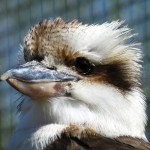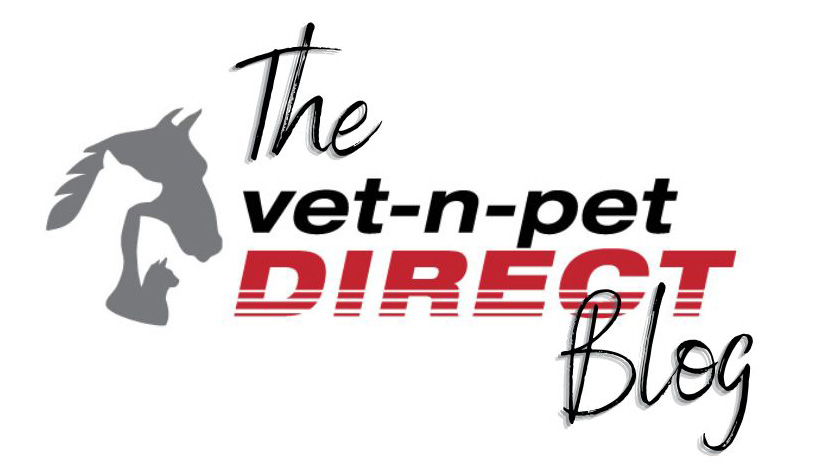 Last week we found a Kookaburra in the middle of the road that had been hit by a car so we stopped and picked it up. The Kookaburra was is in shock but appeared to have no severe injuries. I took him straight to our local vet clinic where they assessed him and monitored him for 24 hours. He was cleared by the vet who believed he was just stunned and in shock and we were able to successfully release him in the same area that he was found. Thankfully we found him before he got hit by another car, as he was stunned and could not fly, move or hold his head up.
Last week we found a Kookaburra in the middle of the road that had been hit by a car so we stopped and picked it up. The Kookaburra was is in shock but appeared to have no severe injuries. I took him straight to our local vet clinic where they assessed him and monitored him for 24 hours. He was cleared by the vet who believed he was just stunned and in shock and we were able to successfully release him in the same area that he was found. Thankfully we found him before he got hit by another car, as he was stunned and could not fly, move or hold his head up.
Unfortunately it is not uncommon to see injured wildlife, particularly on the roads.
Here are some steps to follow if you find an injured wild animal or bird.
* Pick the animal up in a towel or blanket.
* Place the animal in a cardboard box lined with an old towel or blanket. Make sure the box has some ventilation holes.
* Make sure the box is placed securely in the car, not the boot, and that the animal can not escape from the box.
* If you cannot obtain immediate assistance, keep the animal in a warm, dark place and keep noise to a minimum to avoid stress.
* Do not offer the animal any food or water.
* Take the animal to your nearest vet or contact your local wildlife rescue organisation or government wildlife authority as soon as possible.
Sometimes baby birds are found, but they do not always need rescuing. They are often left by their parents while they go out looking for food. Unless the bird is in immediate danger it is best if you just watch it and make sure that its parents return to care for it. Removing a baby bird unnecessarily from its parents can be detrimental to their well being. If in doubt contact your local wildlife organization for advice.
If you find a kangaroo, wallaby, possum, koala or wombat that has been injured, try and check the pouch to see if their is a joey. It is possible for joey’s to survive several days in the pouch after the mother has died. If there is a joey, do not remove it from the pouch. Either take the mother to a vet or contact your local wildlife organisation for assistance.
Do not attempt to handle snakes or bats as they can be very dangerous and cause serious injury or illness if you are bitten. If you find a snake or bat that is in need of assistance contact your local vet, wildlife rescue organisation or government wildlife authority for advice on what to do.
Your safety should always be considered when helping an animal and you should only attempt to rescue an animal if it is safe for you to do so. When handling any injured wild animal it is very important to be cautious, calm and quiet. When an animal is injured the are already stressed and having a human, a possible predator, coming close to them can be frightening. Out of fear the animal may become aggressive and try to struggle or defend themselves. It is possible that a person could be injured or the animal may hurt themselves further. Large animals like kangaroos, wallabies and koalas are very strong and can be dangerous, especially when stressed or injured. If they must be handled, do so with extreme care, however it is best if you can contact a vet or wildlife rescue organisation or government wildlife authority, for help or advice.
If you are trying to find a local wildlife organisation the Australian Fauna Care website at http://www.fauna.org.au/ has a directory service which can locate local wildlife carers by entering you postcode. Alternatively if you require assistance or advice you can contact your local veterinarian clinic who should be able to help you.
Further information on how to help injured wildlife and who to contact if you find injured wildlife can be found at the following websites.
http://www.fauna.org.au/
http://www.wildcare.org.au
http://www.fnpw.org.au
Until next time,
Bec

Hello
This morning a kookaburra visited me on my deck followed by a Mickey Bird. The kookaburra had bloodstained feathers from little stab wounds adjacent to an eye and on his chest. I didn’t know what to do other than send the attacker on its way. I see Mickey Birds aggressively attacking lorikeets and kookaburras every day in my garden.
What could I/should I have done on this occasion?
Thanks and Regards
Anne
Toowong, Brisbane
HI Anne,
Firstly, great job chasing the little attacker off. Unless the kookaburra was very injured and you were able to catch him there is not a lot more you can do for them. If the kookaburra was injured and needed help (or for in the future) I would say catch them using a towel or sheet throwing it over them and then putting them into a box and taking to your closest vet or wildlife clinic. Sometimes all you can do is help them out when they are being pestered or attacked, then hope that all of them can sort out their own territories. Birds can be very territorial especially around breeding season and they may fight between species and even within their own species often over territory and for protection of nests and young. But remember wildlife are resilient and they can recover from small injuries on their own, so hopefully your little visitor learnt his lesson and doesn’t have anymore disagreements.
Kind Regards
Rebecca
I operate a wildlife shelter in Dromana, Victoria and just want to congratulate you on your article “What to do if you find injured wildlife”. It is excellent.
Regards, Brenda Marmion
Hi Brenda,
Thank you so much for your lovely feedback, I am glad you liked it. Hopefully it will help people to do the right thing for the animals before they are able to reach people like yourself and give them the best chance for survival. What a wonderful thing it is that you are doing by looking after our wildlife when they are in need.
Kind Regards
Bec